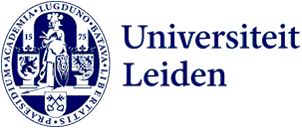
How to improve the workplace for bi+ people
People who are attracted to more than one gender often experience a disadvantage in the workplace and labour market. BI+ Netherlands and Leiden University have explored why that is and how the workplace can be improved for bi+ people.
About a million people in the Netherlands are attracted to more than one gender. A study (in Dutch) from 2019 showed that bi+ people face a range of prejudice and discrimination. Previous research (in Dutch) had already shown that their experiences in the workplace were less positive than those of heterosexual, lesbian and gay people. But why that is and what the circumstances are is unknown.
The Ministry of Education, Culture and Science (OCW) therefore commissioned Leiden University and advocacy organisation Bi+ Nederland to investigate this. This took the shape of a literature study and interviews.
Being yourself at work
What both the 2019 study and the new investigation show is that the monosexual norm (the societal norm that you are attracted to one gender) is detrimental to bi+ people. ‘This norm causes people to make assumptions about bi+ people’s sexuality based on what they share’, says Jojanneke van der Toorn, Professor by Special Appointment of LGBTIQ+ Workplace Inclusion. ‘So if a woman says she is together with a woman, people assume she is a lesbian. Then she feels uncomfortable saying that she is also attracted to men. It then feels as though you can’t share everything, which gives bi+ people the idea that they cannot be themselves in a professional setting.’
Heterosexuality is seen as professional and neutral
The investigation also shows that heterosexuality is seen as professional and neutral. This is called heteroprofessionalism and is at odds with bi+. ‘When someone says they are bi+, certain assumptions are then made about their personality’, says Barbara Oud, the director of BI+ Netherlands. ‘As they are attracted to more than one gender, people assume they can’t make decisions or cannot be trusted. And if you cannot be trusted, how can you be a manager or good at your job?’
The risks of being open
Bi+ is often associated with hypersexuality, the idea that bi+ people are overly preoccupied with sexuality and are unable to control themselves. And that is a stereotype. ‘This can lead to microaggressions’, says Oud. ‘Dirty jokes, for example. But it can also lead to sexual harassment. We know that bi+ women, and bi+ men too, experience much more sexual harassment than other groups.’
For bi+ people, this makes it difficult to decide whether or not to be open about their orientation in the workplace. ‘On the one hand, openness is nice because then you’re yourself and don’t have to lie’, says Oud. ‘But on the other hand, you expose yourself to discrimination and microaggression.’
Increase knowledge and work together on inclusion
In addition to providing more insight into how the workplace can feel for bi+ people, the investigation also makes recommendations to employers. How can they ensure that bi+ people can be themselves at work? ‘Organisations would do well to focus on bi+ recognition, visibility and representation at work, like the attention that is already being paid to gay and lesbian staff’, says Van der Toorn. ‘A general LGBTIQ+ approach is not enough because that often focuses on being gay or lesbian, and bi+ people often do not feel this represents or speaks to them.’
According to the investigation, bi+ inclusion can be achieved in various ways, preferably through different simultaneous interventions. For example, it is important that organisations promote a positive social norm about sexual diversity and explicitly mention bi+. They should also increase people’s knowledge about bi+ and use bi+ inclusive language. Other steps companies can take include using bi+ ambassadors for representation and inclusion, providing space for role models and working with advocacy organisations, such as Bi+ Netherlands.
